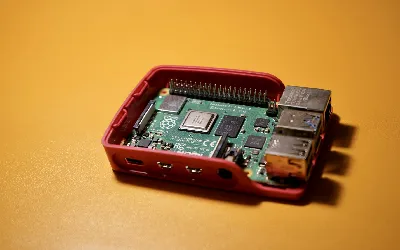An AI program is the backbone of voice interactions, recommendation systems, self driving vehicles, and medical diagnostic tools, and has now become a vital part of our daily routine. Even live casinos are now supported by AI dealers. Check it for yourself at genome10k.org. However, the incredible and rapid evolution of AI raises some critical ethical questions: Is it justifiable to put constraints on technology?
How can we make sure that the development of AI would be in a human good while avoiding the concerns that arise from it? In this part, the ethics of developing AI technology will be scrutinized so as to answer the question of whether or not it is sensible to impose boundaries on its future progress.
Understanding Of AI: How AI and ChatGPT Works and its Future
What Is the Definition of Artificial Intelligence?
Artificial Intelligence is the term used to refer to the capability of a machine to mimic the cognitive functions of a human being such as problem solving, and reasoning. AI includes technologies such as machine learning, natural language processing, and computer systems. These systems are dependent on data to guide their behavior and to replicate the action of human being.
The Benefits of AI & Machine Learning
Across different domains of life, AI offers immense scope for change. In the field of medicine, for instance, algorithms can be useful in early disease diagnosis which ensures better treatment of patients. In the area of transportation, self-driving vehicles can minimize human-related accidents. Automation in the form of chatbots assistively responds to customer queries thus enhancing customer interaction while firms can employ services of machine learning algorithms to streamline operations and cut costs.
As with every great transformative innovation, AI has the capability to improve lives, but its unfathomable complexities have raised pertinent questions regarding its social accountability and the degree of control that is sought out to prevent any secondary damage to the society.
Ethical Challenges & Ethical Dilemma Posed by AI
1. Bias and Discrimination
At the micro level, how it can affect people’s lives if misused bordering the ethical boundaries, is perhaps the most pressing problem of AI and the bias and discrimination that may result from it. Artificial Intelligence systems work on social data and if the data set that is used to train these systems are biased, then the resultant AI can behave in a discriminative fashion also.
As an example, Augmented Reality technology that helps in facial recognition is known to be less accurate for individuals with dark skin as compared to those with light skin; this has fuelled concerns of racial discrimination.
Employment algorithms, loan algorithms, and policing algorithms are also cases of algorithmic bias and discrimination that can worsen prevailing social problems. Bringing AI systems and their data under fair-comprehensive policies and frameworks, and strategies that reduce bias and discrimination will ensure fairness in the outcome of AI algorithms and applications.
2. Concerns With Privacy
While integrating vast amounts of data, AI systems bring privacy concerns along with them. Browsing history, geographic location and health records are examples of personal data that an AI system can access. The collection and utilization of such data raises important ethical questions as to its usage, ownership, and the transparency afforded to people highlighted by their data.
There lies ethical issues when AI is employed for surveillance, particularly in countries adopting AI cameras and drones. It’s crucial to find the right equilibrium of how to best use AI technology for safety against loss of individual rights.
3. Economic Consequence and Job Displacement As A Result of AI Tools
AI’s effect on job markets cannot be ignored, which further raises concerns regarding AI employment. AI systems continue to improve, it starts replacing human tasks in which humans would previously be needed which leads to job loss, and job displacement. Particularly, manufacture and logistics, and customer services industries will be easily automated.
The proliferation of AI has raised ethical issues. AI technologies have automated many jobs, so the question arises as to whether new jobs that might be generated due to AI or AI development would offset these losses.
4. Autonomous Decision-Making
AI is increasingly becoming the centre of attention as systems for autonomous decision making which is gaining more traction in, for example, finance, healthcare, and criminal justice. AI-based models are, among others, used for estimating the likelihood of granting credit, recommending medical procedures, and, in some cases, making bail decisions. However, the use of such technologies for everyday decision making begs the question of responsibility and visibility.
5. AI’s Improper Use – Risk It Poses
The improper use of AI is one of the serious ethical issues especially regarding technologies such as deepfake, autonomous weapons and social manipulation technologies. Deepfake can create realistic but fake videos and mislead people and hurt their reputation. Autonomous weapons, in a broader sense known as killer robots, jeopardize global peace if they get to the wrong hands.
AI enabled social algorithms can also be employed to alter someone’s beliefs and even promote lies during election campaigns. The likelihood of these tools being abused for malicious intention reinforces the necessity for policies and rules to protect the public against them.
Rationale for a Ban
Estimating Human Oversight
Of paramount importance to restrict AI is that we need to guarantee there will be no case where AI is predominant over humans. AI systems are efficient but they are mere machines bereft of morality or compassion. With the controls on AI technology, we have the possibility of safeguarding that crucial choices – which potentially place lives at risk – are relegated to humanity.
In the case of medicine, for instance, a doctor may utilize AI tools for disease diagnosis, yet a doctor is always supposed to be the one who decides the treatment one should be given. So that a future does not happen where machines are placed in absolute power over human beings, restrictions on AI may also help neck certain issues such as these.
Safeguarding Privacy and Civil Liberties
In relation to the issue of privacy ethics, there must be limits on how an AI system will collect, retain or use personal data. Such frameworks, as it has been seen in the European Union with the likes of General Data Protection Regulation, are a welcome development, in that members of the public are assumed to possess ownership of their data.
AI surveillance systems are not well regulated. It can turn out to be a device that can strip people of many freedoms as well as rights governing the democratic space.
Preventing Bias and Ensuring Fairness
AI is not supposed to be biased, therefore AI systems should be fairly constructed. In order to achieve this, the data that is used to train AI algorithms should be fairly restricted Representativeness of the data without negative biases would be guaranteed. And AI developers are also responsible for the outcomes of their models and development of AI must be transparent.
Because there is a danger of carrying out measures constitutive of discrimination, putting restrictions on AI is crucial in that measures are taken to also ensure that these systems are bound by ethical principles. This is even more relevant in the context of criminal justice and hiring practices where biased decisions could be catastrophic.
Preventing Misuse and Harm
However, such regulations are required to avert any malign use of AI. This includes the prohibition of the development and use of autonomous weapons, as well as the ethical restraining of the application of AI in social engineering and fake news campaigns. There has to be a collaboration between the government and international agencies in setting policies that regulate the use of AI technologies so that they do not negatively impact the people or society.
The Case Against Limiting AI Development
Fostering Innovation and Progress
There are others however who hold the view that regulating AI in terms of application would be deleterious to innovation and progress. Developing AI has challenges from climate change all the way to guaranteeing equal healthcare availability. If the development of the technology is restricted then people who could end up changing the world for the better could end up being slowed down.
Economic growth can equally be triggered by AI through improved productivity and efficiency in different industries. Imposing over the top restrictions in AI will result in industries not being able to exploit such opportunities which can create jobs and develop technology
Encouraging Use of New AI Resources through Joint Efforts
By making use of UnLIMITED and restricting the use of resources may distort the process of AI innovation as some people in anger would suggest focusing all the stakeholders to include businesses, governments, researchers and ethicists towards the development of proper standards and practices of achieving ethical AI. Invoking US and national guidelines as discussed earlier is a useful example to foster the immense potential of AI ethically.
Also, shared responsibility is more favorable than restrictive hard limits that could hamper development as it ensures AI is developed in a manner that is in the best interest of the society, encourages responsibility and protects against misuse.
Seeking Compromise: Guidelines and Regulations for AI-Powered Services
Taking an Initiative for Establishing Ethical Values
A number of companies and organizations have suggested the establishment of principles designed to address the challenge of AI, these include the following:
Equity: Making constant efforts to remove prejudice and ensure the deployment of AI systems do not lead to any discrimination.
Data Protection: Protecting personal data from being abused and honoring people’s non-disclosure agreements.
Intercontinental Collaboration
The creation of AI is a process that involves the whole globe, and so should be the control of its use. This requires the inter-continental collaboration necessary to create standards to guarantee the proper utilization of AI technology. Perhaps the most effective AI legislation will be created alongside such international organizations as the United Nations and the European Union, which are already designing necessary conditions for the resolution of these issues.
People in Control Systems
In order to deal with the issues of automated decision-making processes, many experts recommend the use of people in control systems whereby the functions of AI are first carried out by people but not to be entirely displaced by robots. This mode guarantees that, the effective use of robots will only be in areas not biologically critical which ensures that human reasoning and ethics will always be the last decision maker.
Conclusion: AI Ethics and Ethical Issues
While the future of Artificial Intelligence is promising, its rapid growth presents ethical concerns that must be addressed. Policymakers play a critical role in setting guidelines to mitigate the challenges posed by advanced AI models.
Ensuring transparency and interpretability is essential, especially when dealing with black box systems, which can obscure decision-making processes and deepen inequality. By balancing progress in science and technology with responsible regulations, we can foster innovation while safeguarding societal values. Through thoughtful collaboration and strategic boundaries, AI can evolve responsibly and equitably, serving as a tool for the betterment of humanity.
If you don't know how to use ChatGPT on WhatsApp, here is a guide that will help you with it.
Today in our guide we show you How to delete, remove, increase and disable ChatGPT memory.

Le pubblicità sono un potente mezzo di comunicazione che ha la capacità di divertire, informare e, talvolta, sorprendere. Chi non ricorda con affetto quegli spot pubblicitari che ci hanno fatto ridere a crepapelle?

Today in our article we show you How to get Dragonstorm in Blox Fruits in a simple way.

If you don't know how to use Grok AI Assistant from Twitter (X) here is a guide that will help you with it.

If you are wondering how to find the underwater worker NPC in Blox Fruits? here we leave you a guide with the best answer.

Here is a step-by-step guide that shows you How to Install and Deploy a Network Driver on Windows Server

If you don't know how to use ChatGPT on WhatsApp, here is a guide that will help you with it.

Today in our guide we show you How to install MongoDB on Windows 11 in a simple way.

Here we leave you a step-by-step guide so you can learn How to make a backup of Raspberry Pi.

